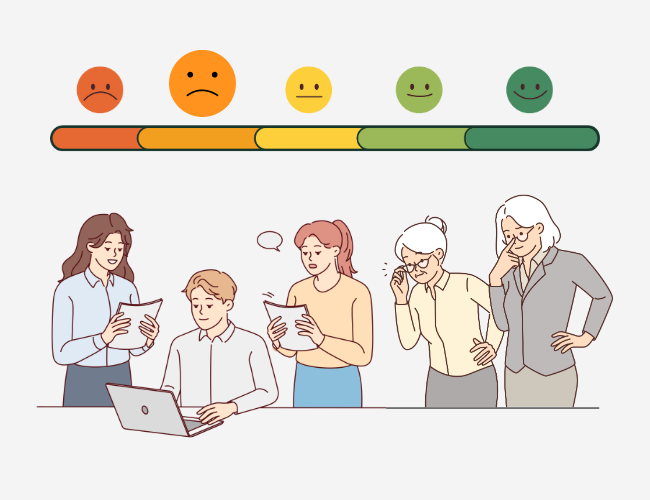Organizations must constantly evolve to survive. This is especially true during global crises (e.g., a pandemic) when companies are frequently implementing radical transformations to respond to rapidly changing environments.
Dealing with these changes requires mental energy. When these changes are too extreme, too frequent, or improperly implemented, an employee’s energy reserves can become depleted, making it far more difficult for them to absorb future changes or, more generally, to be happy and engaged on the job—a reaction known as organization change fatigue (OCF).
Six Tips For Combatting OCF
Below are six strategies companies can implement to reduce the degree to which organizational changes are cognitively and emotionally burdensome, thereby decreasing the odds that their employees experience OCF.
- Communicate clearly and frequently: Organization evolution may be more emotionally and energetically taxing for employees when the changes being implemented have not been properly communicated to them. Employees generally desire some degree of predictability and to understand why potentially disruptive changes are being made. Both of these needs can be satisfied by communicating the nature and purpose of organizational changes early on and throughout the process.
- Involve employees in the process: The more employees feel they have no control over the changes being implemented or the way they are being implemented, the more likely they are to experience OCF. To combat this, employers should involve their employees in the decision-making process. Not only will this help workers feel empowered and in control over the changes they may face, it will also help employers learn about the unique challenges that certain changes might present for workers. With this information, companies can implement the desired changes more effectively and in a way that is less likely to overwhelm their workers.
- Build team cohesion: Difficult or stressful experiences can become easier to manage and overcome when one has the sense that they aren’t dealing with it all on their own. As a result, when members of an organization feel a shared sense of belonging and collective accountability, they are less likely to experience OCF.The need for team cohesion during organizational change is more important now than ever. Many employees are working remotely, which can negatively impact the degree to which they feel as though they are part of the team or enduring organizational challenges as a group. To combat this, employers must use technology to facilitate communication and collaboration among spatially separate employees. In particular, employers should encourage remote workers to schedule frequent virtual interactions with team members and enable them to attend many synchronized events (e.g., a cocktail hour) remotely.
- Focus on a few changes at a time: Team leaders can typically spot several areas in need of improvement at any given time. This can tempt many into implementing too many changes at one time. This can induce widespread OCF. To avoid this outcome, employers should resist the urge to enact all of the desired changes at once.
- Invest in professional development: Employees are more likely to experience OCF or suffer from a more extreme form of it when they feel that they do not have the skills needed to pull off the requested change. To combat this, employers should offer more opportunities for professional development. That way, when workers are asked to take on new challenges, they will have the confidence needed to handle them without excessive stress or anxiety, thereby decreasing the odds that they will drain their energy reserves and experience OCF.
- Provide praise and recognition: While many employees want to see the company they work for grow, they also want to be recognized, appreciated, and rewarded. When given proper praise for their efforts, employees are better able to replenish their energy reserves and to feel prepared to handle additional changes.












